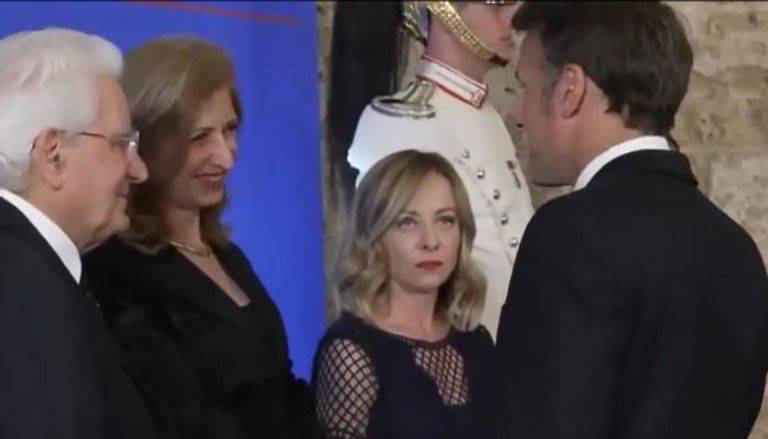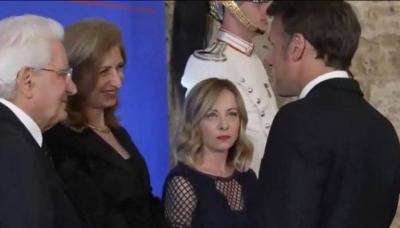A dinner attended by European leaders regarding Ursula von der Leyen’s future as President of the European Commission ended in anger and dissatisfaction, particularly for Italian Prime Minister Giorgia Meloni. According to the British newspaper "The Times," the discussions, which were expected to culminate in von der Leyen being appointed for a second term, concluded as allegations arose that Germany and France sought to "marginalize" the Italian leader.
The dinner, held in Brussels at the European Council on Monday evening, saw Donald Tusk, the Polish leader, and Kyriakos Mitsotakis, the Greek Prime Minister, meeting as negotiators for the European People's Party, the center-right bloc that emerged in first place in the recent European Parliament elections held from June 6 to June 9.
French President Emmanuel Macron and Alexander De Croo, the liberal Prime Minister of Belgium, joined the discussions with German Chancellor Olaf Scholz and Spanish Prime Minister Pedro Sánchez, aiming to reach a swift agreement regarding von der Leyen.
However, other bloc leaders were left waiting for three hours before being served a delayed dinner, causing nerves to fray quickly. One official remarked, "It was a grave mistake; there was significant frustration as some tried to make a quick decision without discussing all the details of the deal (reappointing Ursula von der Leyen as President of the European Commission) or involving others in the discussions."
According to the report, Meloni's anger reached a boiling point as she "spent hours waiting while the other three parties attempted to impose a deal believing they did not need her." One diplomat added, "There was a clear attempt to isolate Meloni. Many leaders were shocked since this concerns Italy — a founding member of the EU." The diplomat noted, "They need Meloni; 'this is lesson number one,' referring to Meloni's growing role in the EU."
Any agreement among European leaders on whether to support von der Leyen, Antonio Costa, President of the European Council, and Kaja Kallas, as the EU's foreign affairs chief, has been postponed until June 28, just two days before the early French parliamentary elections, which many in the bloc fear might paralyze decision-making.
To secure Meloni's support, as well as that of the Netherlands, Hungary, and Slovakia, the EU will have to agree on controversial policies regarding immigration and environmental issues. Meloni, previously an opponent of the EU and an advocate for leaving it, is also expected to demand key positions for individuals skeptical about the efficacy of the European bloc, such as Vice President of the Commission, as Italy and other countries push for stricter border and asylum policies.
Her position was further reinforced by a shift towards conservatives, nationalists, and the skeptical right in the EU elections just ten days prior. A diplomat familiar with the discussions stated, "It's not about names; it's about politics and usual methods of working. The elections have changed the balance."




